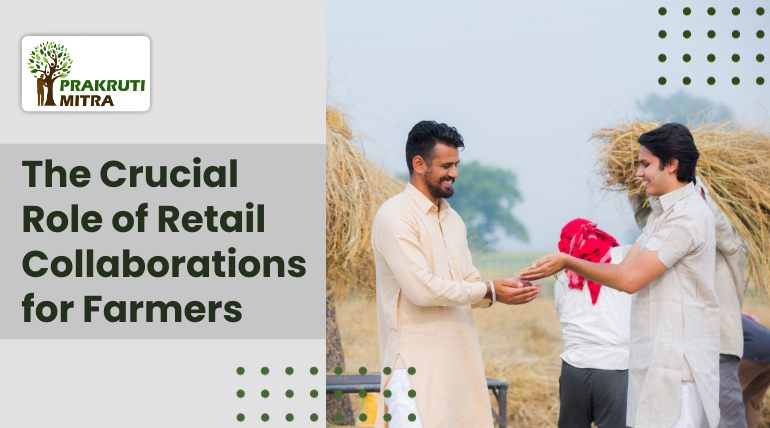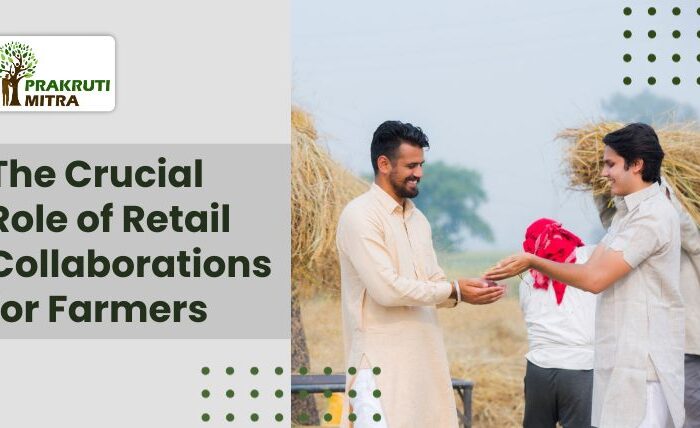The relationship between farmers and the retail sector has evolved significantly over the years. In the past, these two groups often operated independently, with limited interaction. However, as the world faces increasing food security challenges and consumers demand more transparency and sustainable practices, collaboration between farmers and retailers has become increasingly important. In this article, we will explore the significance of retail collaborations for farmers and how these partnerships benefit both sides.

The Traditional Farmer-Retailer Relationship
Historically, farmers and retailers had a somewhat distant relationship. Farmers produced their goods, and retailers, such as supermarkets and grocery stores, purchased and sold those goods to consumers. This transactional relationship meant that farmers often had little influence over how their products were marketed and sold. It also made it difficult for retailers to guarantee the quality, consistency, and origin of the products they sold.
The Growing Importance of Retail Collaborations for Farmers
Market Access:
Retail collaborations offer farmers increased market access, allowing them to reach a wider customer base. This access to a broader market is particularly valuable for small and local farmers, helping them compete with larger agricultural operations.
Quality Assurance:
Working closely with retailers enables farmers to meet the quality standards and specifications required by the market. This, in turn, helps retailers maintain the quality and consistency of the products they offer to their customers.
Supply Chain Efficiency:
Collaboration between farmers and retailers can improve the efficiency of the supply chain. Retailers often have more sophisticated logistics and distribution networks, which can benefit farmers by reducing transport and storage costs.
Consumer Trends:
Retailers are more attuned to consumer trends and preferences. Collaborating with them allows farmers to adapt their production to meet changing consumer demands, such as organic or locally-sourced products.
Sustainability Initiatives:
Retailers are increasingly committed to sustainable and responsible sourcing. Collaborations can encourage farmers to adopt eco-friendly and ethical practices in their operations, which align with the growing consumer demand for sustainable products.
Types of Retail Collaborations
There are various ways in which farmers can collaborate with retailers to their mutual benefit:
Direct Sourcing:
Retailers source products directly from farmers, ensuring a more direct and transparent supply chain. This approach is common for fresh produce and specialty products.
Private Label Partnerships:
Retailers work with farmers to create private-label products. These products are exclusive to the retailer and often involve a long-term partnership with specific farms.
Farmers’ Markets and Local Partnerships:
Many retailers support local farmers by hosting farmers’ markets or collaborating with local producers to promote their goods in-store.
Education and Training:
Retailers may offer training and education programs for farmers, helping them improve their practices and meet industry standards.
Challenges and Considerations
While retail collaborations offer numerous benefits, there are challenges to consider:
Quality Control:
Farmers must consistently meet quality and safety standards set by retailers.
Negotiation and Contracts:
Collaborative agreements need to be well-negotiated and clearly defined to protect both parties’ interests.
Volume Requirements:
Some retailers may require large quantities of products, which can be challenging for small-scale farmers.
Market Access:
Competition within the retail sector can be fierce, and securing partnerships can be challenging.
Price Negotiations:
Farmers should ensure they receive fair compensation for their products in any collaboration.
Conclusion
Retail collaborations are becoming increasingly vital for farmers in the modern agricultural landscape. These partnerships offer market access, quality assurance, and sustainability initiatives, all of which benefit both farmers and retailers. By working together, they can provide consumers with higher-quality, more sustainable, and diverse food options while promoting the growth and stability of the agricultural industry.



1 Comment
Pydi poojitha
Good